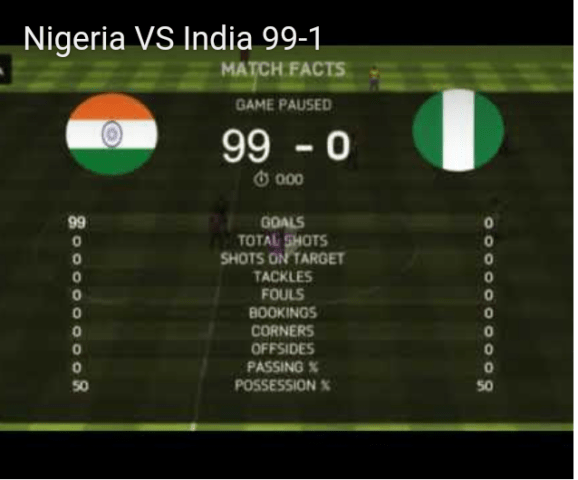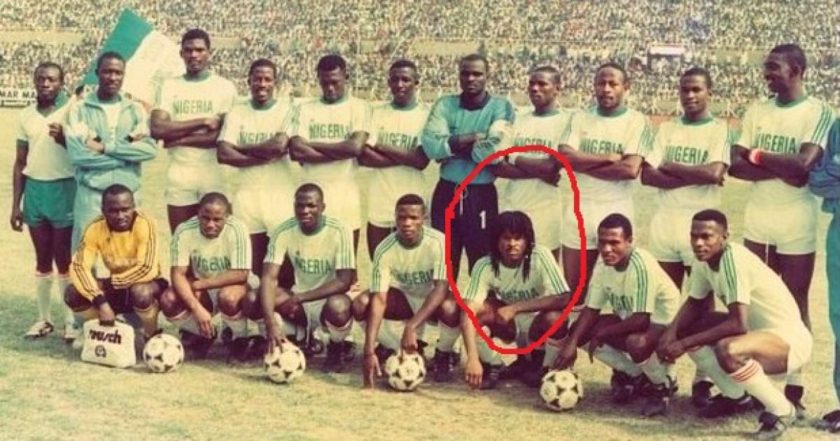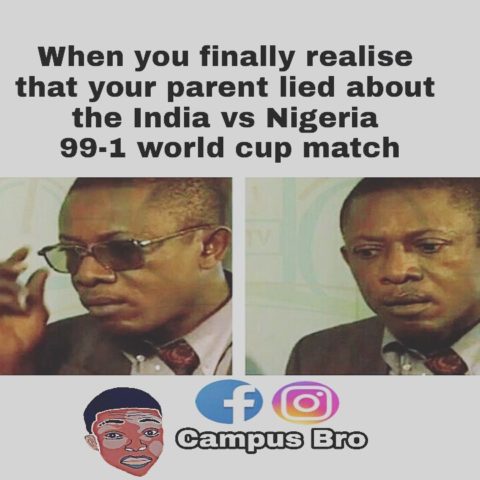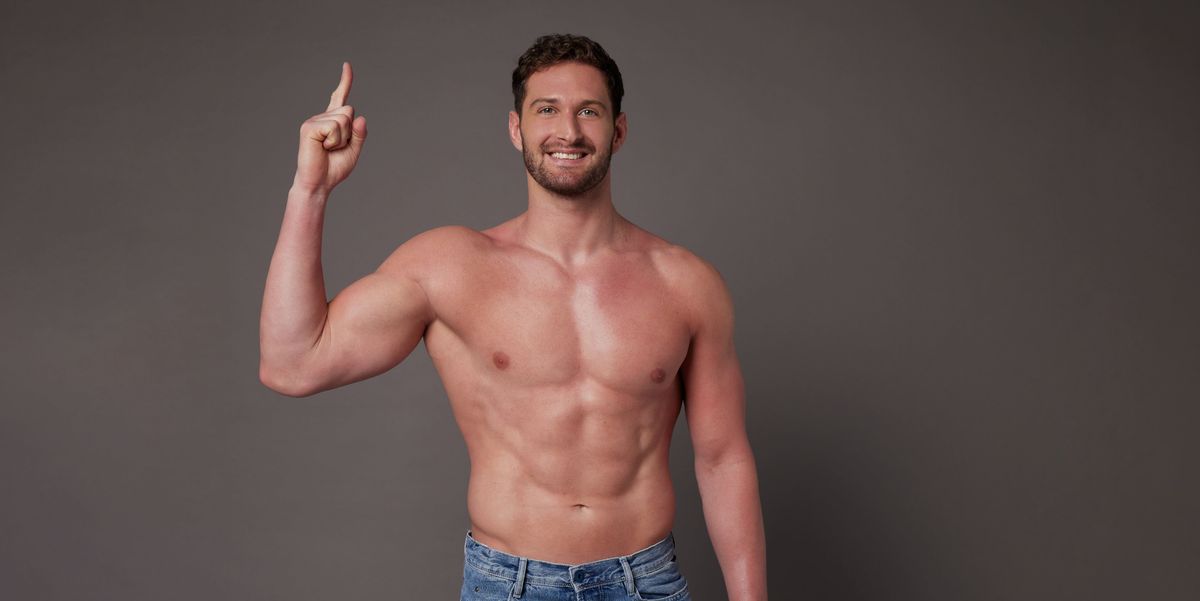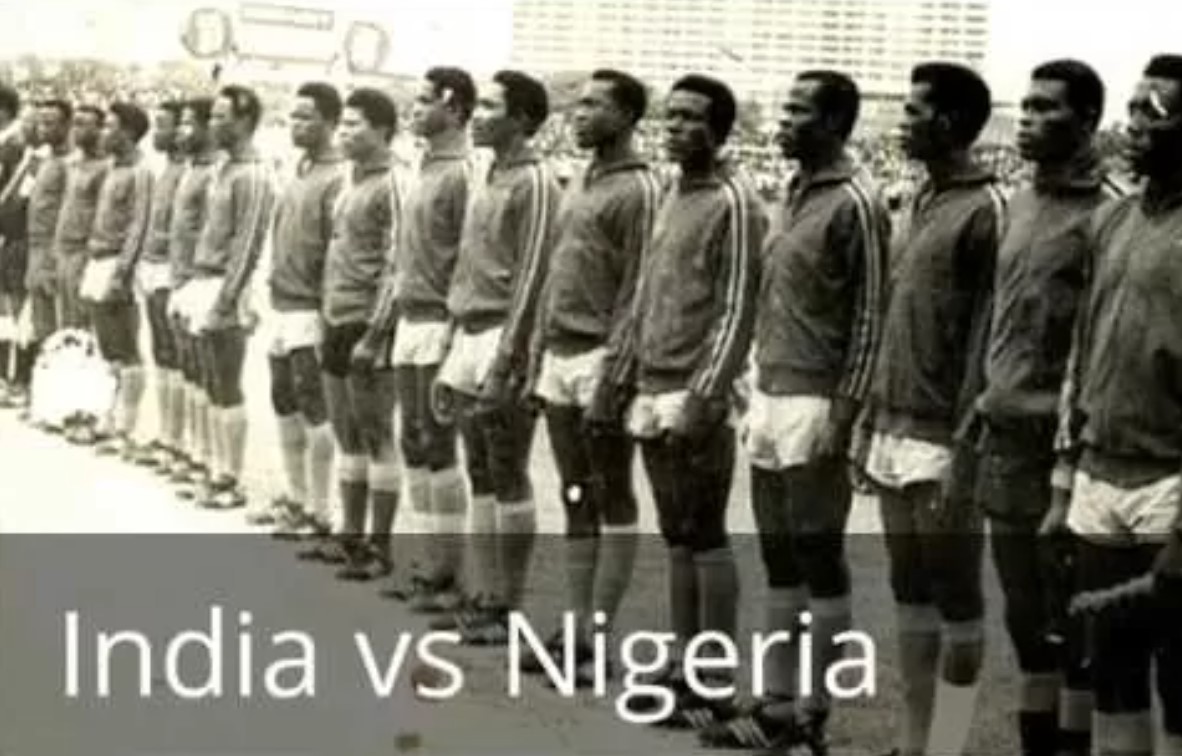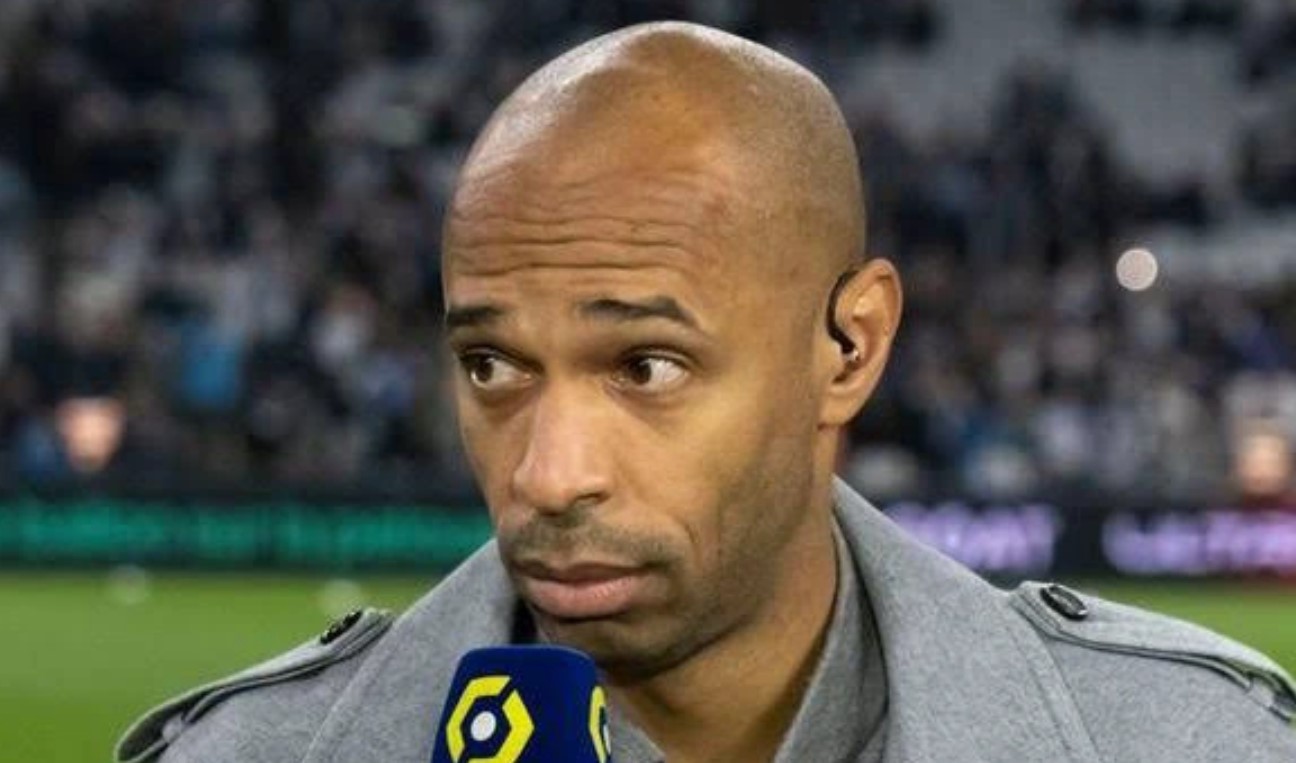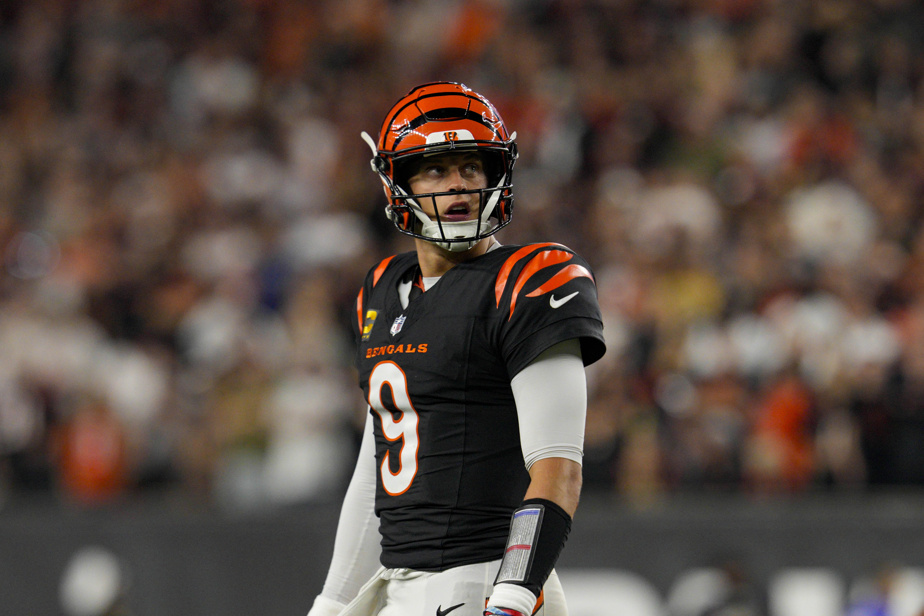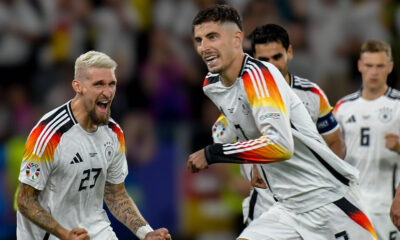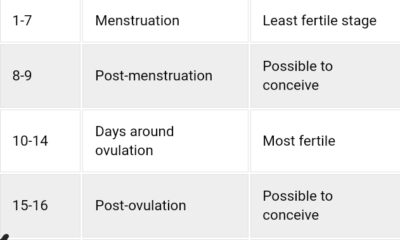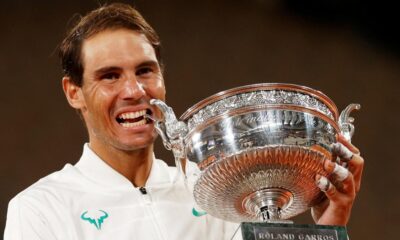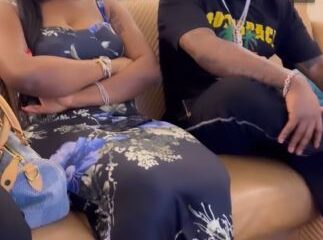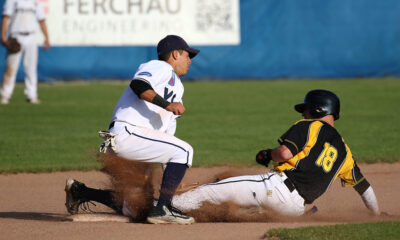He himself confesses and verbalizes it like no one else. There is a new Niko Shera (as we allow ourselves in Spain to abbreviate his surname Sherazadishvili), after he fell with a crash in Tokyo in the quarter-finals and in the play-off for bronze after arriving as a two-time world champion and a big favourite for Olympic gold. That day, after extending for another year the suffering of staying below 90 kilos due to the pandemic, he explained in front of the microphones that the pressure had gotten to him.
3 years later, and with the recent world bronze hanging around his neck, the Spanish-Georgian has changed category to -100 kgwhich has made him stop starving himself –although he continues to eat healthily, of course– and see life in a different way, a more relaxed one. So much so, that this time we have been able to bring him to our studio, and in the previous cycle it was absolutely impossible for us to access him because he could not divert his attention from his military training. Now, more like a cover-up, he smiles shyly thinking about getting a medal at the Paris 2024 Olympic Games, his great dream, the one he has had since he has been training in Brunete since he was 13 years old under the orders of the master Quino Ruiz. He is even willing to finally fulfill the obligatory promise of getting drunk for the first time with his friends, imagine how much he has changed.
Ana Ruiz / HEARST
What does it mean to you to be back at the Olympic Games?
How can I define it with words? There are things that cannot be explained. It is something that I lack, but since I was little when I started in judo I was always impressed by seeing Georgian athletes, one of them Olympic champion in 2004 –Zurab Zviadauri, Georgian judoka gold in -90kg–, and with that I knew that I also wanted to be there, it was something very special. And then I have been to the European Games, the Mediterranean Games, that feeling and atmosphere that is created with all the athletes impresses me a lot, and I want to achieve success there. In a world championship it is more complicated, two from each country go, and in the Games only one, it shortens everything. If you only see it as a competition it is easier, but the extra is on a mental level, the importance… And it is a dream that I have set for myself: to close my circle of medals there.
Does Paris make you nervous?
The truth is no. When I get there I will be nervous, but not at the moment. I am training for the goal, I want my preparation and my best form to be for the Olympic Games, the planning with the cycles is all geared towards my physical condition being perfect there. But I am not there yet.
Ana Ruiz / HEARST
What remains of the disappointment of Tokyo?
First of all, I hope I have learned my lesson. Many people tell me that one nail drives out another nail, but I don’t think so. It’s more a learning experience. I hope I have done it and I can prove it in Paris, and I can do it much better. Everything counts as experience. It’s clear that I didn’t want to learn in Tokyo. I was prepared to lose in every competition except there, but it happened, and now after 3 years, with one year injured, everything has happened very quickly and we are here with desire and ready to give it our all.
Name: Nikoloz Sherazadishvili
Age: 28 years
Place of birth: Tiflis (Georgia).
Sport: Judo
Proof: –100 kg
Achievements: World champion in 2018 and 2021 in the -90kg category, double European bronze medalist (2022 and 2024) and recent world bronze (2024) in his current -100kg category.
When to compete: August 1st. First round at 10am, final at 5:38pm.
Competition system: 24 judokas compete in a knockout phase until the final, with the best byes from the first round. The losers of the semi-finals will fight the winner of the duel of two losers in the quarter-finals for two bronze medals.
Main rivals: Zelym Kotsoiev (Azerbaijan), Ilia Sulamanidz (Georgia), Shady Elnahas (Canada), Muzaffarbek Turoboyev (Uzbekistan).
Have you seen that fight?
I haven’t seen it. I’ve seen all my defeats, but not that one. I know, I’m sorry, I remember, but it wasn’t a sporting or physical, technical or tactical issue, it had to be managed in a different way. It was a mental issue, and it can only be solved with the mind.
“I hope I have learned the lesson from Tokyo”
There is a new Niko now, what have you changed mentally?
I have tried to enjoy myself and I have succeeded. That is the key to why I continue doing judo. It is what I like the most and for me it is the most important thing. But I was overcome by obsession. In all these competitions I have tried to enjoy myself a lot more. Because I was also very strict with myself, the issue of losing weight… Without a single meal, 3 months on a diet, starving, without going out on the weekends, without disconnecting, I became obsessed and I should not have. You have to enjoy the goal and the journey. For me it is very important, both are equally important. I am enjoying every day and every competition, and I am trying to change my mentality, because when I enjoy myself and I am calm and well, that is when my best version comes out. That is the idea.
Ana Ruiz / HEARST
Ana Ruiz / HEARST
And along the way, you breathe easier having moved up in category and weight.
I continue to eat healthy because athletes always have to eat well. What has changed, the important change, is the quantity. I am no longer starving, before and after training, which was always the case, I had less energy, just enough to train. And now I have more, I notice it at home. During the week I always go home to rest after training, and I don’t come home empty-handed. When I was under 90 kilos, the last few months, especially that extra year that was extended due to the pandemic, affected me. That forced me to stay at that weight for a longer time. In short, I continue to eat healthy, but I don’t have the obsession with eating more on days off, and everything is more normal, I’m doing very well.
How did you start practicing judo?
I am from Georgia. I started judo when I was 10 and when I was 13 I came to Spain. I met my coach, my teacher Quino, and I have been with him ever since. And with the good results we have achieved… even qualifying for the Olympic Games in Paris.
“I’m not hungry anymore, before and after training I had no energy”
How did you decide to come to Spain?
It wasn’t my decision, of course, it was my parents who thought about me and my brother, that we would have a better future. At that time in Georgia it was a bit difficult to survive, the country was a bit more unsettled… And to continue with the sport they brought us here. My brother plays football, I did judo, and I think it was a good decision.
Do you feel the pressure of Spanish judo not realising its potential at the Games? READ FULL STORY HERE>>>CLICK HERE TO CONTINUE READING>>>
I know. We have been very close many times, in the last Games we have lost several bronzes and we have not been able to get them… I don’t know what has happened in the past, but I am very convinced that in these Games, even from the first day when Fran Garrigós debuted, he is going to do very well and that is going to be a push and motivation for the following weights. We are going to get more than 3 medals, I don’t want to specify the number, but a lot.
Ana Ruiz / HEARST
What are these training cycles like?
From Monday to Saturday I always do physical training, and from Monday to Friday I also do judo. I do two sessions every 5 days, and on Saturday I only do the morning. That afternoon and on Sunday I rest. It’s more or less always like that.
What is the team around you like?
Many people, first and foremost my family. Quino, my club in Brunete where I train every day… And what I always say, I am very grateful to my teammates, I need them to be able to train judo, I need many of them of my weight, and they come to train with me only with the aim of helping me in the Olympic Games, but they don’t have an individual one as such. And they don’t have a summer, they are with me every day. Then I have my physical trainer, two physiotherapists, two nutritionists, and with them I can’t help but get that medal.
Ana Ruiz / HEARST
I guess you don’t sign the bronze.
No, no. Any medal is really nice, but I go to every competition with the mentality of winning. Anything can happen. If I go back to Tokyo, where I lost and didn’t get a medal, I’m not going to sign up for bronze either. That’s my mentality: wherever I go, I’m going to win, and if I lose, I’ve lost. If I sign up, I think I’ve given up before I’ve even started; I’m going to fight to become Olympic champion.
“If I sign for (the bronze) I think I’ve given up before I even started”
Who is going to accompany you to Paris?
They are working on it. It is very complicated because there was a draw right after the start, it is expensive and difficult. There are people who have tickets but only for the final block, the qualifying rounds are separate… They are looking at houses, but there are not many, everything is a mess, but at the Games it is normal. The fact is that a lot of people are going and that is enough for me. They have tickets, and they will see where they end up, in the car… I just can’t get them! I think they only give me 2, and there are no more.
Ana Ruiz / HEARST
Any confessional bets you would like to fulfil if you win gold?
My friends have been insisting on it, it hasn’t come out of me, but I’ve never drunk, I’m 28 years old and I’ve never tried alcohol, and with the world championships I always said no, but now with the Games I think I’m going to have to go out and drink. I’ve been partying, but without drinking, they intend to get me drunk, so well, if I become Olympic champion I’m going to get drunk with them. I don’t know what will happen there.
Ana Ruiz / HEARST
Will we surpass the record of 22 medals that Spain still has from Barcelona 92?
Yes, the barrier of 22 medals is very complicated, the extra help they had for being the host country is there, which motivated a lot of people, but we have improved in Spain in all sports. The other countries have also improved, but for me, since France is so close, we are going to feel the people of Spain, that is going to be like playing at home. And I think we can surpass 22 medals, I always think positively and I think it can really happen… Those of us in judo are going to do our part with several.
Related content
Interview: Joaquin Gasca
Address: Jordi Martinez e Ivan Iglesias
Photography: Ana Ruiz
Photography assistant: Idoia Vitas
Video recording: Diego Rueda
Video editing: Toni Rubio
Production: Ismael Perez and Joaquin Gasca
Makeup and hair: Tati Garu
Art direction: Maria Jesus Bocanegra
Clothing: Decathlon
Joaquín Gasca is an expert in competitive sports, technology and motorsports. He hung up his cleats a while ago to focus on padel and running… things that come with age, he complains. But he also takes on any challenge that involves pushing his body to the limit, whether at the wheel of an Aston Martin or going to the office on a scooter.
He is a big Atlético de Madrid fan, so when footballers like Marcos Llorente or Álvaro Morata have appeared on the cover of Men’s Health, he was there to write about it. He has just run his first marathon for Runner’s World, and as happens in this universe, he is already looking for the next one to go under 3 hours. If any type of paddle tennis racket, vehicle or watch needs to be tested, he has no problem. Even trainers. Whatever sports equipment is needed.
Joaquín graduated in journalism from USP-CEU in 2013, but since 2009, when he joined the University newspaper, he has already begun to work as a 360-degree “journalist” in digital and print. The next steps of his almost 15-year career were spent working in culture and sports at Shangay magazine, until he joined Hearst a week before the start of the pandemic in 2020. He is also a professor of social media and new technologies at Universitas Senioribvs CEU and is part of Hearst’s Innovation HUB to research new trends.
2024-07-15 07:20:32
#obsessed #strict
Related
